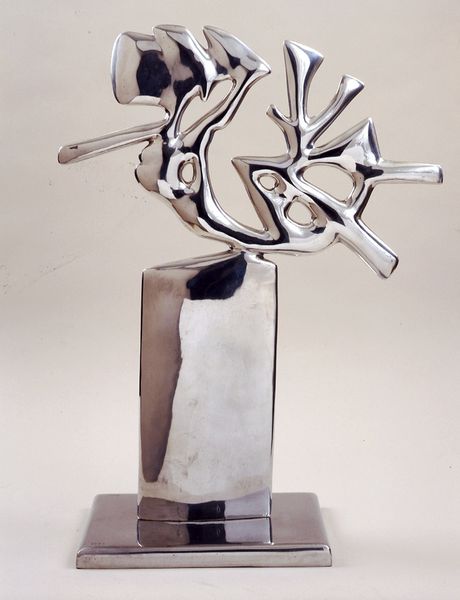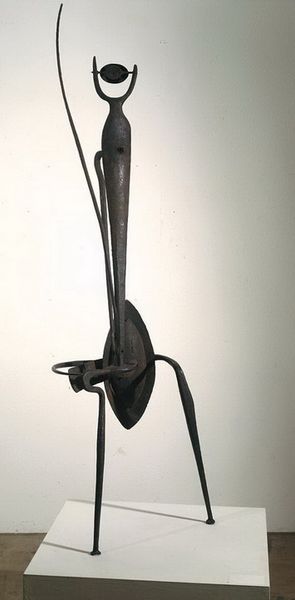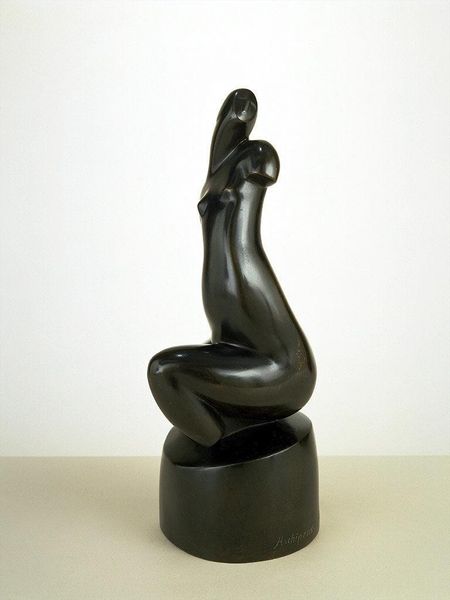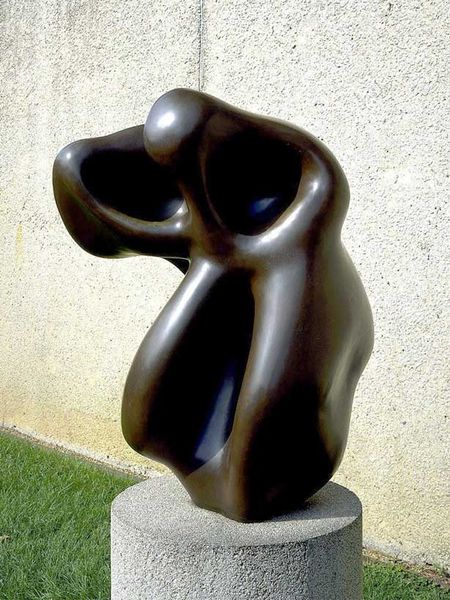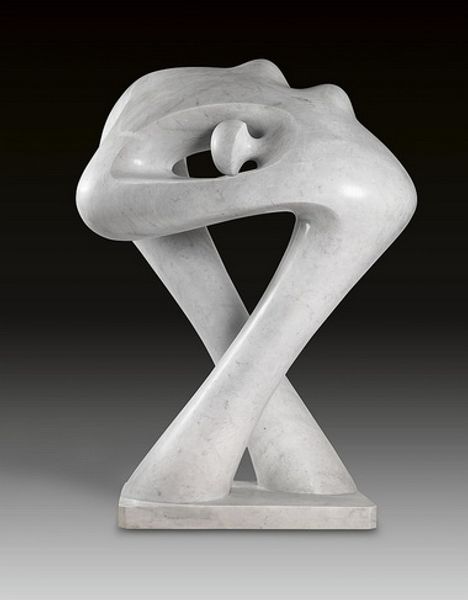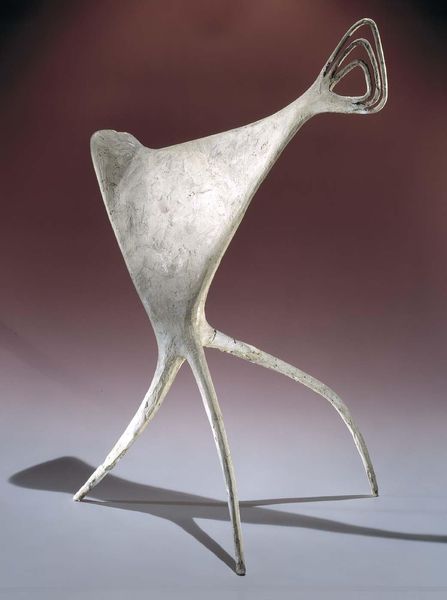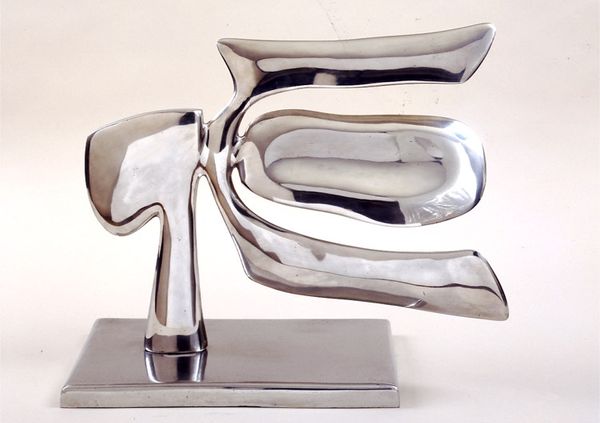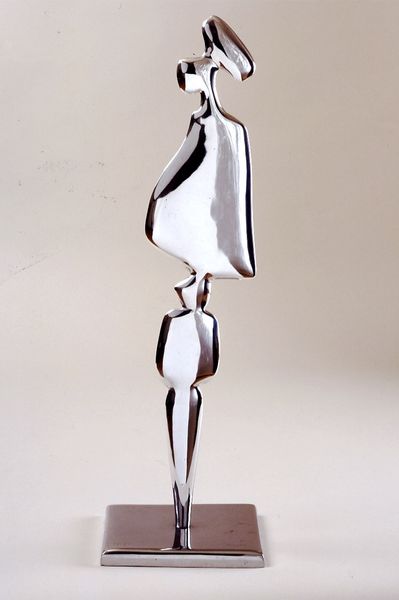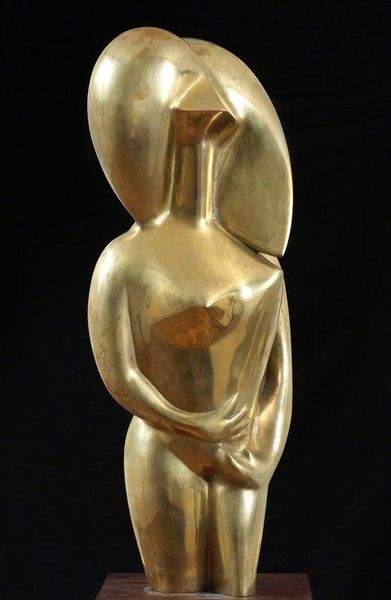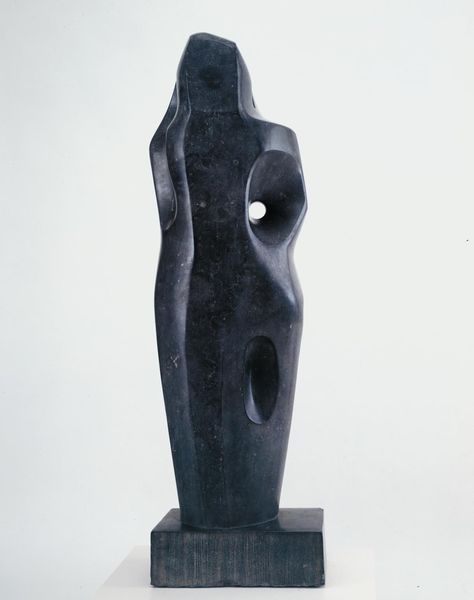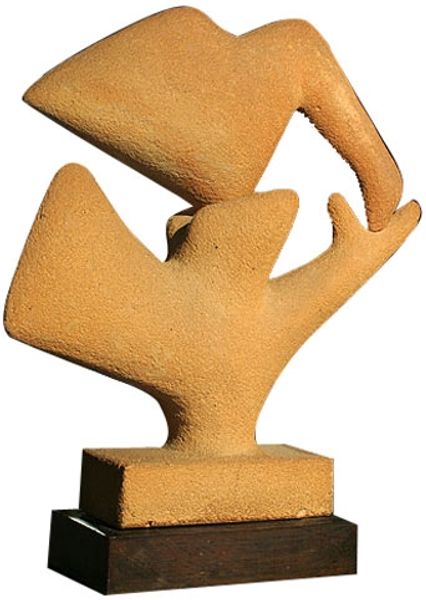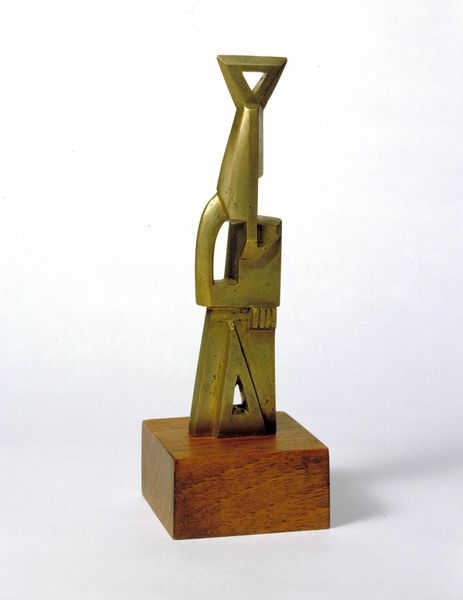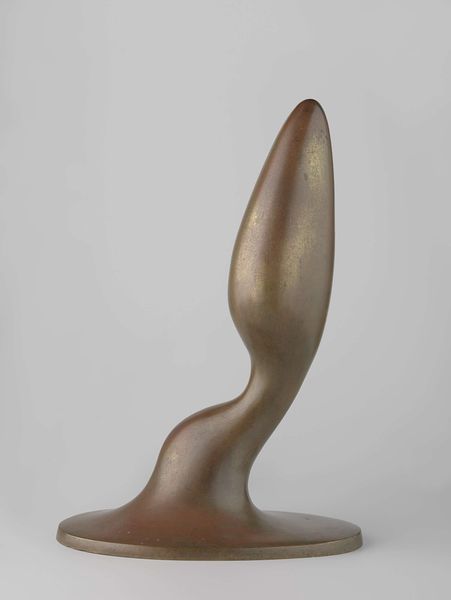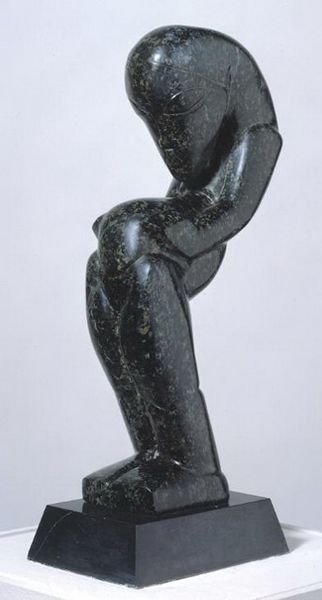
Copyright: Etienne Hajdu,Fair Use
Editor: So here we have Étienne Hajdu's "Le Bourgeon" from 1971, a bronze sculpture. It definitely gives off a surreal, biomorphic vibe, kind of like a futuristic plant. What's your interpretation of this work? Curator: Considering the time it was made, it’s interesting to see such organic forms being rendered in bronze. How do you think the post-war cultural climate may have influenced the choice of materials? Editor: That's a good question. Maybe it's about finding new ways to work with traditional materials to express new ideas about nature, or perhaps reflect anxieties about industrial progress. Curator: Precisely. After periods of conflict, artists often reassess their relationship to nature and technology. I see a dialogue here, maybe even a tension. Look at how the sleek surface of the bronze contrasts with the suggestive, soft forms. Does it represent a harmonious melding of technology and nature, or a more complex negotiation? Editor: I think it’s that negotiation that grabs me the most. The polished bronze suggests progress, but the almost vulnerable organic shapes hint at the fragility of it all. Like nature is adapting, evolving…maybe resisting? Curator: And think about the socio-political forces shaping the art world. Museums and galleries, during this period, actively promoted abstract and non-representational art, partly to champion freedom of expression against ideological constraints. So how does this fit into that narrative? Editor: It’s a statement in itself! That sculpture becomes an act of defiance. By embracing abstraction, Hajdu is asserting a space for free thinking and re-examining societal values post-war. Curator: Indeed. By questioning its material, we not only deepen our appreciation of the piece but also become attuned to broader societal tensions reflected within the artwork. Editor: I agree! Analyzing it this way has really opened my eyes to the complex conversation this sculpture is having with its context. Curator: And that’s exactly what makes art history so enriching. Always question, always contextualize.
Comments
No comments
Be the first to comment and join the conversation on the ultimate creative platform.
